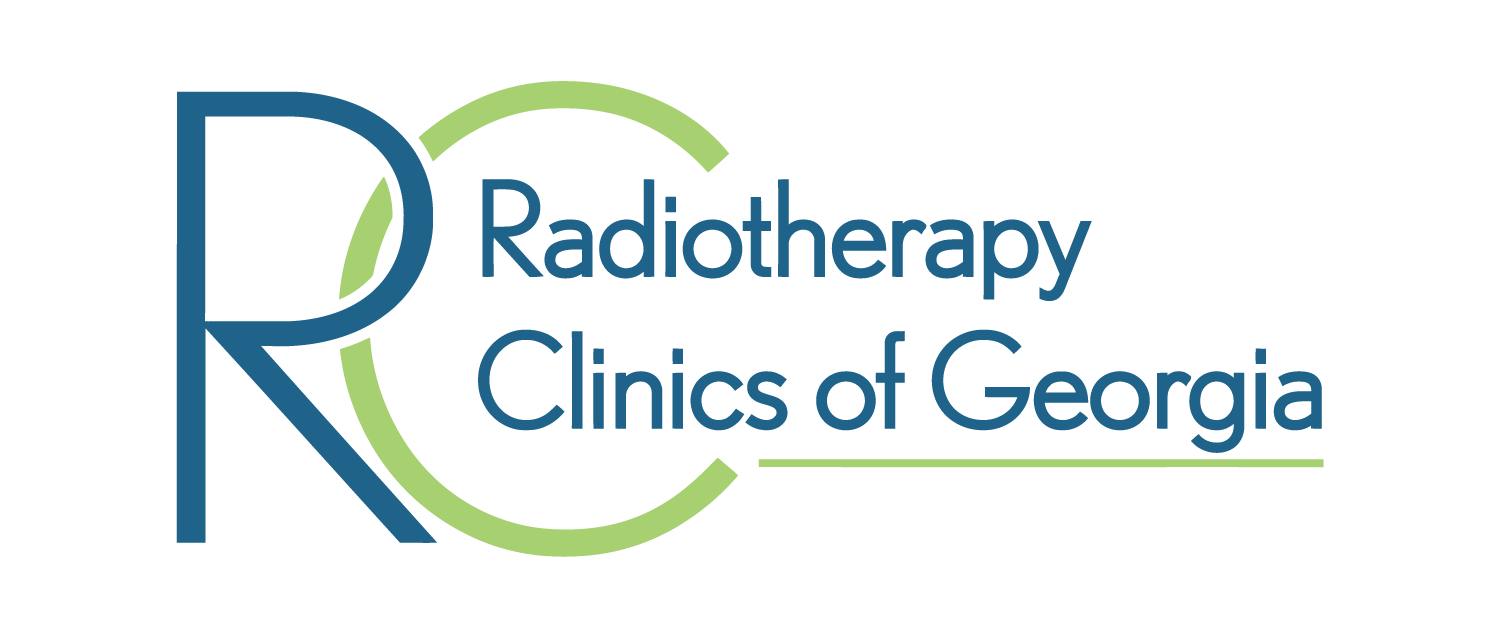
Your esophagus is the tube that connects your mouth to your stomach. Cancer can develop in this area. While esophageal cancer occurs in only about 1% of the US population, it tends to affect those who have untreated and chronic acid reflux disease, also referred to as GERD, as well as those who smoke and/or drink alcohol regularly. HPV, the human papilloma virus, is another known cause of esophageal cancer.
If cancer develops in the esophagus, there will be some important information provided that affects how you’ll be treated: the type of esophageal cancer and the stage of cancer.
Types of Esophageal Cancer
There are two common types of esophageal cancer: adenocarcinoma and squamous cell carcinoma.
Adenocarcinoma - Most Common Esophageal Cancer in the U.S.
Adenocarcinoma grows in the mucus-secreting cells or glandular tissues of the esophagus. This cancer is usually found in the lower portion of the esophagus, where the esophagus and stomach unite.
Squamous cell carcinoma
Squamous cell carcinoma usually starts in the cells that line the esophagus, which is called squamous cells. This type of esophageal cancer is usually found in the upper and middle parts of the esophagus.
There are also some other forms of esophageal cancer that are less common, including small cell carcinoma, sarcoma, lymphoma, melanoma and choriocarcinoma.
Esophageal Cancer Stages
When diagnosed with cancer, your doctor will use a staging system to indicate how much the cancer has spread and grown. The cancer stage helps to determine the prognosis and treatment options. Cancer staging considers several factors such as the tumor size, lymph node involvement and whether it’s spread to other areas of the body.
The stages of esophageal cancer range from stage 0-4 The lower the number, the less the cancer has spread. A higher number means a more serious cancer that has spread from where it originally started.
Stage 0 is the least severe stage, characterizing cancer that is only found in the top lining of the esophagus. Stage 4, is the most severe stage as it describes cancer that has spread to other parts of the body. There are sub-stages such as Stage 1A or Stage 1B as well. The meaning of each stage varies slightly depending on if it’s adenocarcinoma or squamous cell carcinoma of the esophagus.
Esophageal Cancer Treatment Options
Treatment options vary depending on the stage and grade of your cancer. Most patients receive more than one approach to treating esophageal cancer. The higher the stage, the more likely multiple treatments are going to be used, such as:
- Surgery: Surgery to remove the tumor is rather common. In some patients, a section of the esophagus must also be removed, replacing it with plastic tubing or a section of the intestines. Usually some lymph nodes are removed as well, to test them for cancer spread.
- Radiation therapy: There are external radiation and internal radiation therapy options used to kill any cancer cells that remain after surgery. It may also be used before surgery to shrink the tumor so that less of the esophagus has to be removed.
- Chemotherapy: Chemotherapy uses powerful medications to kill cancer cells and prevent them from growing.
- Targeted therapy: Targeted therapy is also a medication. It’s most commonly used for more advanced esophageal cancers, usually in combination with chemotherapy. This type of drug targets a specific protein that’s fueling the cancer’s growth so that there is less opportunity for the cancer cells to reproduce.
- Immunotherapy: This treatment method helps to boost the body’s natural defenses against infection to help fight cancer. You may also hear of it referred to as biologic therapy. There are some recent advances in how immunotherapy is used for esophageal cancer.
- Endoscopic therapy: Endoscopic therapy uses a tool called an endoscope to help manage cancer symptoms. Some types of endoscopic therapy include electrocoagulation, cryotherapy, and laser therapy.
Esophagus Cancer Treatments Vary Based on the Stage and Grade
The cancer stage has a major influence on the treatment approach used. The following is a general guide for how your oncology team may approach treatment, based on several factors.
Stage 0 Treatments
This is a very early stage of cancer which means treatments may not be as intense as they are for later stages. Most patients at this stage will have surgery.
Stage 1 Treatments
Stage 1 esophageal cancers will vary based on the sub-type of cancer and whether the grade is low or high. In general, this stage involves cancer that has grown into some of the deeper layers of the esophagus wall, but it hasn’t yet reached the lymph nodes or any of the other organs.
Early-stage 1 cancer can be treated mostly with surgery and possibly radiation therapy as a follow up. Some patients may require chemotherapy and radiation therapy to be given in combination with surgery.
Stages 2 and 3 Treatments
Treatment of stages 2 and 3 esophagus cancer usually involves chemo with radiation before surgery. For these patients, there may be lymph node involvement which means it’s best to kill the cancer cells that are moving around the body using chemotherapy AND kill the cancer cells in the esophagus using radiation. The exact treatment approach will depend on where the cancer is located in the esophagus and how advanced it is.
If the patient isn’t a good candidate for surgery, treatment will usually involve chemotherapy, targeted therapy, immunotherapy, and/or a combination of these.
Stage 4 Treatments / Metastatic Esophagus Cancer Treatments
Stage 4 esophageal cancer is the most advanced stage. Once cancer has reached this stage, it has spread to distant organs and/or lymph nodes, called metastatic esophageal cancer. Surgery is usually not the best option for this stage of cancer since the cancer has usually spread to many regions of the body at this point.
Treatment for stage 4 esophageal cancer focuses on keeping the cancer under control and relieving symptoms to improve the patient’s quality of life. Treatment options that may be used include chemotherapy, targeted drug therapy, immunotherapy, and radiation therapy. Radiation may be used on the esophagus or on other areas of the body where the cancer has started to grow.
How is Each Patient’s Esophageal Cancer Treatment Plan Developed?
What’s right for one patient isn’t the exact plan for another because there are a lot of factors that determine the right treatments and the right order. The plan is usually coordinated by the medical oncologist who works with the radiation oncologist and surgeon to determine the right timing for each treatment.
Most patients are able to choose who will be a part of their cancer treatment team. Be sure to consider a radiation oncologist who is close to your home or office because you’ll typically need to go there five days a week for a few weeks at a time. The Radiotherapy Clinics of Georgia offers patients in the Atlanta area easy access to radiation therapy using the most advanced treatment technologies. Request an appointment with one of our radiation oncologists for a consultation to discuss your diagnosis and their recommended approach to radiation for you.


